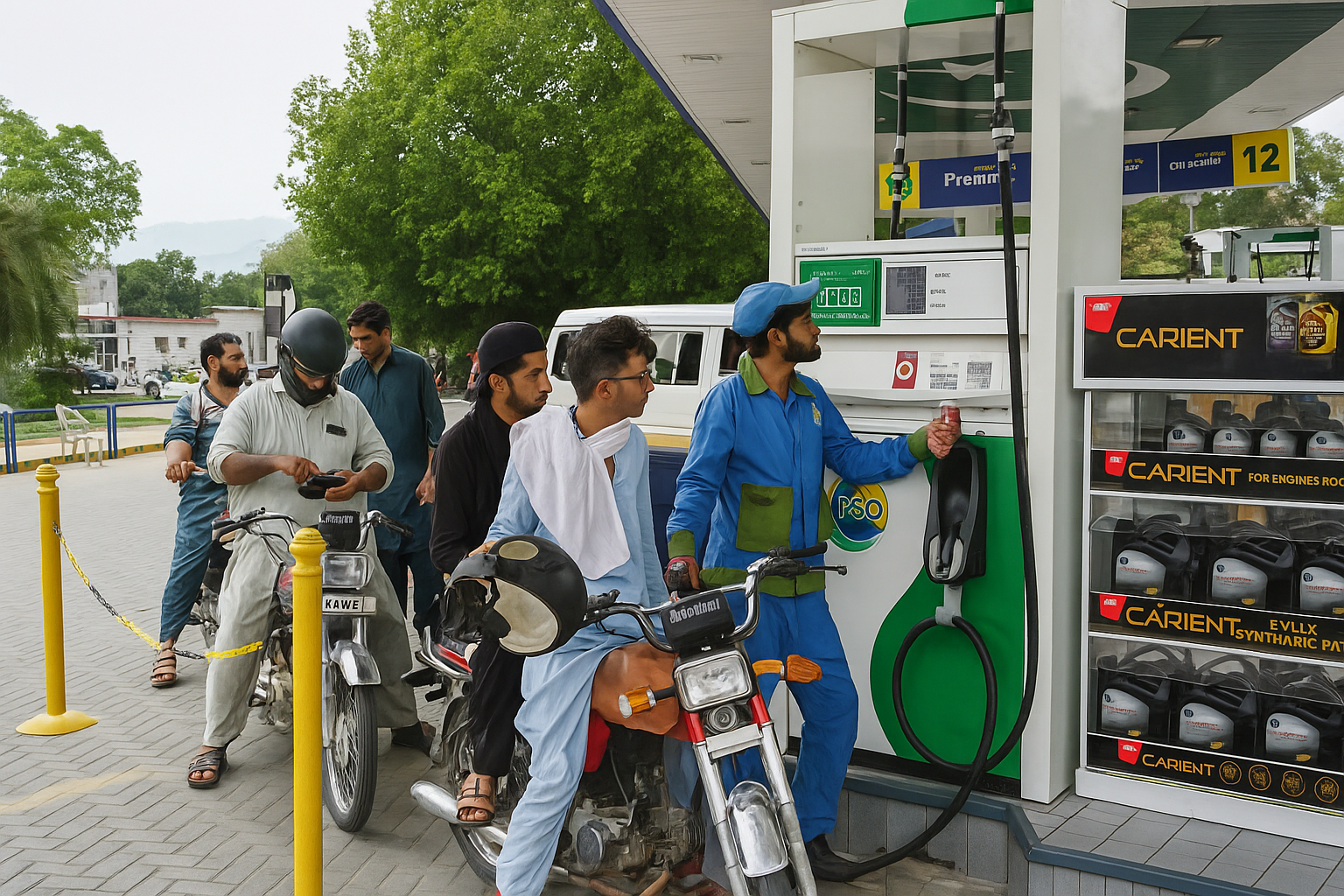Fuel Costs Set to Pinch Wallets Again
Pakistanis are bracing for another hit at the pumps as a Petrol Price Hike Pakistan is expected to kick in from September 16, 2025. Industry sources suggest petrol prices could rise by Rs. 7–12 per litre, pushing the cost to Rs. 271.61–276.61 per litre from the current Rs. 264.61, according to projections based on global oil trends. The Petrol Price Hike Pakistan, driven by rising crude oil prices and rupee volatility, has sparked concern among commuters and farmers alike, with social media buzzing about the impact on daily life.
The Petrol Price Hike Pakistan comes as no surprise in a country where fuel prices are reviewed every fortnight. Here’s the full scoop on the Petrol Price Hike Pakistan, why it’s happening, and what it means for the nation’s economy and its people.
What Sparked the Petrol Price Hike Pakistan?
The Petrol Price Hike Pakistan is fueled by a mix of global and domestic factors. International crude oil prices have climbed to $80 per barrel, up $2, increasing Pakistan’s import costs, as noted in a September 1, 2025. Despite a relatively stable rupee at 281.94 against the US dollar, minor fluctuations add to the import bill. The Petrol Price Hike Pakistan is also driven by a higher Petroleum Development Levy (PDL) and customs duties, which add Rs. 10–15 per litre to fuel costs post the 2025–26 budget. The Oil and Gas Regulatory Authority (OGRA) is set to submit its pricing summary to the Petroleum Division by September 15, with final approval from Prime Minister Shehbaz Sharif expected soon after.
The Petrol Price Hike Pakistan follows a rollercoaster of fuel price adjustments. On September 1, 2025, petrol prices were expected to drop by Re. 0.61 per litre, but the latest projections indicate a reversal due to global market volatility. High-Speed Diesel (HSD) is also expected to rise by Rs. 7–12 to Rs. 279.99–284.99 per litre, impacting agriculture and transport sectors heavily reliant on diesel.
Why This Matters
The Petrol Price Hike Pakistan is a big deal for millions of Pakistanis. With petrol potentially hitting Rs. 276.61 per litre, the cost of commuting, transporting goods, and farming is set to soar. The agriculture sector, a backbone of Pakistan’s economy, faces higher operational costs for diesel-powered tractors and irrigation systems, potentially increasing food prices by 5–10% for essentials like wheat and vegetables. The Petrol Price Hike Pakistan could push inflation to 4.5–5% from 4.1% in July 2025, squeezing household budgets further.
READ NEXT: Ali Al-Awadhi Kaaba Swim Bahraini man swam around Kaaba in 1941 flood
For daily commuters, the Petrol Price Hike Pakistan means higher public transport and private vehicle expenses, with no immediate relief in sight due to IMF fiscal targets limiting subsidies (web:0). The nation’s reliance on imported fuel, with 85% of petroleum needs met through imports, makes it vulnerable to global oil price spikes, as seen during recent Middle East tensions. The Petrol Price Hike Pakistan underscores the need for sustainable energy policies to ease the burden on citizens.
Public Reaction and Social Media Buzz
The Petrol Price Hike Pakistan news set X ablaze on September 14, 2025, with users venting frustration and sharing tips to cope. One user posted, another blow to our wallets!” Another shared a meme of an empty wallet at a fuel pump, captioned, “Chai is cheaper than petrol now!” Hashtags like #PetrolPriceHikePakistan trended, with images of long queues at fuel stations going viral. A user wrote, when will this stop?”
Some called for action, with a post saying, “Time to switch to electric bikes!” Others urged carpooling, with one user noting, “Petrol Price Hike Pakistan let’s share rides to save!” The buzz reflects public anxiety but also resilience, as Pakistanis share practical solutions to navigate the and its impact on daily life.
Challenges Amid the Price Surge
The Petrol Price Hike Pakistan faces several hurdles. The government’s reliance on fuel taxes, like the Rs. 78.02 per litre PDL on petrol, limits its ability to cushion price shocks due to IMF restrictions. The risks fueling inflation, with transport costs potentially raising prices of goods and services by 2–3%. Supply chain disruptions, especially during the harvest season and upcoming festivals, could worsen the impact, as fuel demand surges.
Pakistan’s limited domestic oil production means the Petrol Price Hike Pakistan is tied to global market swings, with no quick fix for import dependency. Proposals to explore alternative energy sources, like electric vehicles or solar-powered pumps, face infrastructure and cost barriers, making the a recurring challenge for policymakers and consumers alike.
A Glimmer of Inspiration
Despite the Petrol Price Hike Pakistan, Pakistanis are showing their trademark resilience. One X post captured it: “Petrol Price Hike Pakistan we’ll find a way!” Stories of communities carpooling, using public transport, or maintaining vehicles for better fuel efficiency are spreading, inspiring others to adapt. The Petrol Price Hike Pakistan is a call to innovate, with some advocating for local energy solutions to reduce reliance on imports.
The Petrol Price Hike Pakistan highlights the spirit of Pakistanis who face economic challenges with grit and creativity. It’s a reminder to come together, share resources, and push for sustainable change, making the a catalyst for collective action.
What’s Next for Petrol Price Hike Pakistan?
The Petrol Price Hike Pakistan will be finalized on September 15, 2025, with OGRA’s recommendations sent to the Ministry of Finance for approval. If approved, new prices will take effect from midnight on September 16, impacting petrol, diesel, kerosene, and light diesel oil. Consumers are advised to monitor OGRA announcements for updates and avoid panic buying, which could drive black-market prices. The n may prompt calls for government relief measures, though IMF constraints make subsidies unlikely.
Citizens are encouraged to share fuel-saving tips on social media and support local efforts to promote sustainable energy. The Petrol Price Hike Pakistan is a chance to rethink energy use and advocate for long-term solutions. Stay tuned for updates on the and its



